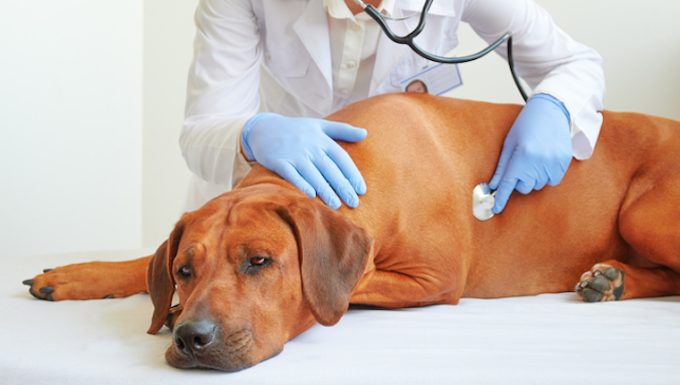Heart block (first degree) in dogs happens when electrical impulse transmissions in the heart are delayed. The condition might not produce any symptoms.
Unfortunately, certain dog breeds are most at risk of the condition. Those breeds include Dachshunds and Cocker Spaniels.
Thankfully, in many cases of the condition, no treatment is needed.
Technically, the condition is also called first degree atrioventricular block.
If you see the signs of the condition in your dog, then get to a veterinarian for a proper diagnosis and treatment.
Here’s what you should know about the symptoms, causes, and treatments for the condition.
Symptoms of Heart Block (First Degree) in Dogs
The condition does not always produce visible symptoms. Although the heart medicine digoxin can produce the following symptoms:
- Vomiting
- Appetite loss
- Diarrhea
Causes of Heart Block (First Degree) in Dogs

The cause of the condition can be many things. For example, some of the common causes include:
- Heart inflammation
- Tumors
- Not eating enough calcium
- Taking the medicine digoxin
- Hypertrophic cardiomyopathy
Additionally, the Dachshund and Cocker Spaniel dog breeds are most at risk of developing the condition.
Treatments for the Condition in Dogs
Firstly, your vet will ask about your dog’s symptoms. Secondly, your vet will ask about your dog’s full medical history. This will include any breed-specific problems.
Thirdly, a full physical examination will be carried out. Blood and urine tests will be taken.
Generally, an electrocardiogram (EKG) is used to monitor your dog’s heart. This can confirm the condition.
Thankfully, many cases of the condition do not require specific treatment. However, if medication is causing the condition, your vet will help your dog switch medication.
Finally, you can read more about general heart health tips for your dog here.
Have you ever cared for a dog who suffered from this condition? How did your vet help your dog recover? Let us know in the comments section below.









